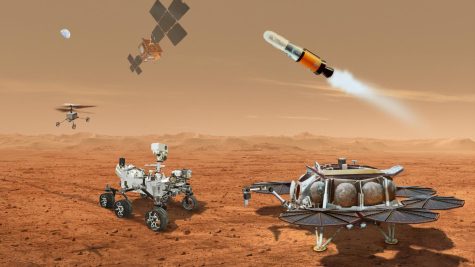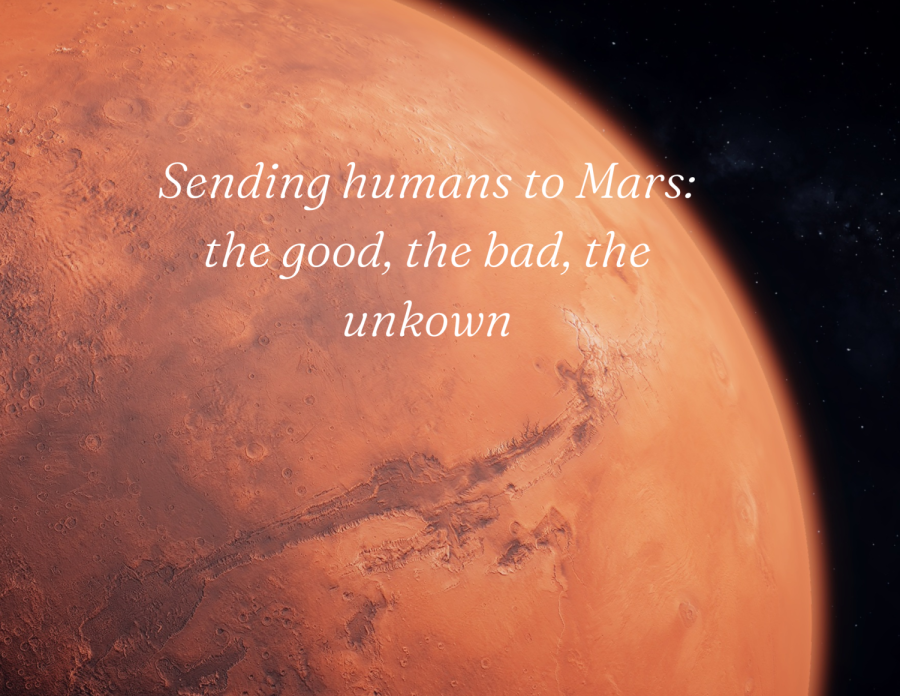Sending Humans to Mars: What Should We Expect?
February 1, 2023
Aerospace engineering and scientific studies have always involved the idea of sending humans to occupy other planets, specifically Mars. As of now, NASA is under presidential and government orders to land humans on Mars by 2033. This mission is semi-controversial, mostly because the backlash of the idea of possibly colonizing Mars. Some scientists, as well as other workers and citizens, dislike the goals of NASA and the government since it’ll eventually lead to Mars being ruined by industrialization, just like Earth is being ruined.
However, some professionals and higher ups argue that this mission could lead to amazing discoveries and profits for the American government.
NASA’s specific motivation with this mission is to explore Mars as a planet, specifically the rocky terrain and geography. According to chief scientist of NASA, Ellen Stofan, “Rovers are great, they do amazing science, but it is a lot more of a tedious process. They go much less far than a human can cover in a day.”
Stofan continues, “We like to talk about pioneering Mars rather than just exploring, once we get to Mars we will set up some sort of permanent presence.”

When interviewing Eleanor Roosevelt students asking how they feel, junior Michael Angus explained, “I think it’s interesting, kind of worried we’ll mess up Mars, but I think that would be worth it.”
Sophomore Chloe Wong states, “I think we’ll find a lot out about our solar system from exploring Mars, I think 2033 is a bit early of an estimate, though.”
NASA is also exploring the possibility of life on Mars, both for humans and the possible existence of Martian animals and plants. But this raises more concerns: will NASA over cultivate Martian plants and drive away the living beings that may exist there? Does the government have different intentions from NASA? Sadly, we can only theorize the outcome for now. Sending humans to Mars will open a new door for space exploration, and science overall.


